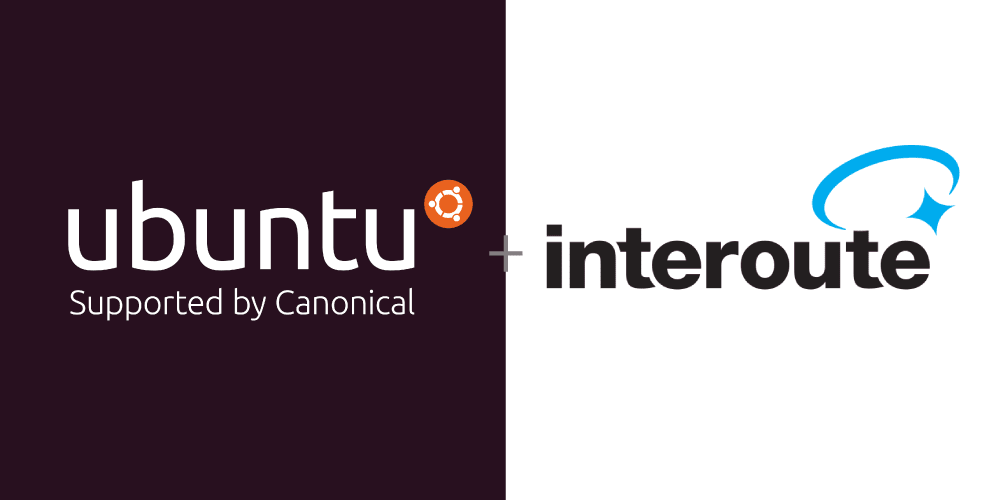Interoute accelerates enterprises’ move to the cloud – and to Ubuntu
Udi Nachmany
on 2 November 2015

A new entrant to Gartner’s Magic Quadrant for Global IaaS in 2015 was the UK-based Interoute with its Virtual Data Centre (VDC). Not your typical cloud giant, Interoute VDC is the cloud services platform developed by Interoute Communications, the owner-operator of Europe’s largest network. Interoute’s network offering spans the globe, encompassing more than sixty seven thousands of kilometers of lit fibre, 12 data centres, 14 Virtual Data Centres and 31 co-location centres, with connections to 195 additional partner Data Centres. (Wow!)
One major growth vector for Interoute is their CloudStore, an online enterprise app store where Interoute, now as an Ubuntu Certified Public Cloud Partner, also offers certified Ubuntu 12.04 LTS, 14.04 LTS, 14.10, 15.04 and 15.10 images – and will offer future releases as well.
As part of their move to the cloud, enterprises are also reconsidering their OS choices, and in an effort to adopt the best practice of cloud-native companies, are moving more and more workloads to Ubuntu, the number one cloud OS. With its sizeable global cloud infrastructure and extensive market reach, Interoute is uniquely placed, and is now able to offer such enterprise customers the best developer experience using official Ubuntu images, with frequent updates, efficient delivery, tight security, and enterprise-grade end-user support options.
In a recent article Interoute and Canonical co-wrote for Information Age, we discussed how DevOps is changing the way enterprise IT teams approach the cloud. Interoute VDC addresses this change in a unique way, by offering a combination of private compute, network and storage – together with DevOps-friendly public cloud infrastructure. Additional features such as low-latency, geographically-distributed architecture with autoscaling are unique in being able to meet changes in web traffic levels from differing locations.
As an example, Bob Bennink, co-founder of Dutch start-up Treestle, explained in a recent interview that their LiquiD technology, while leveraging Interoute’s location-sensitive cloud, enables the setup of a global web server for their customers, freeing them from the constraints of traditional load-balancers. A key example Bennink mentioned was placing web content much closer to end clients, which greatly improves the streaming experience.
We are really excited about Interoute VDC being a Certified Ubuntu partner. You can find out more about what VDC has in store for you here.
About Interoute VDC
Interoute Virtual Data Centre (VDC) is an automated and scalable Infrastructure as a Service (IaaS) cloud platform providing compute, network and storage. VDC is uniquely built on top of its own global fibre optic network owned and managed by Interoute. The only smart cloud built on top of a smart network; because of this VDC:
Is private by default when connecting together your traditional on-premise IT, existing legacy public cloud and new applications running on agile VDC infrastructure
Is the industry leader for low-latency, high throughput and intelligent software defined networking with no data transport cost, when compared with legacy public cloud. This enables scalable, distributed architectures than span public cloud, traditional in-house IT and applications running on VDC, with predictable service levels and lower cost
Complies with data residency regulations via data centres in 14 zones across the globe. This geographic distribution also means compute on VDC is never far where the service is being consumed
VDC is the only cloud solution that bridges traditional slow but stable IT, commodity public cloud and fast, new, adaptable IT services that tightly align with organisations digitally transforming their business. All this without the usual cloud-related architectural, billing, security, service level or legal challenges.
Talk to us today
Interested in running Ubuntu in your organisation?
Newsletter signup
Related posts
Building new revenue streams: 3 strategic cloud opportunities for telcos in 2026
PWC claimed the ‘fundamental challenge’ behind slowing growth is that telecom’s ‘core products and services’ are ‘becoming commodities.’ The way forward lies...
Deploy your Spring Boot application to production
In this article we walk through the steps required to deploy a Spring Boot application to production using Juju and Kubernetes. The goal is to showcase the...
Join Canonical at the first-ever African OpenInfra Days
For the second time, and in less than one month, Canonical is coming to East Africa! Three weeks ago, we had the first-ever UbuCon Africa, which was...
